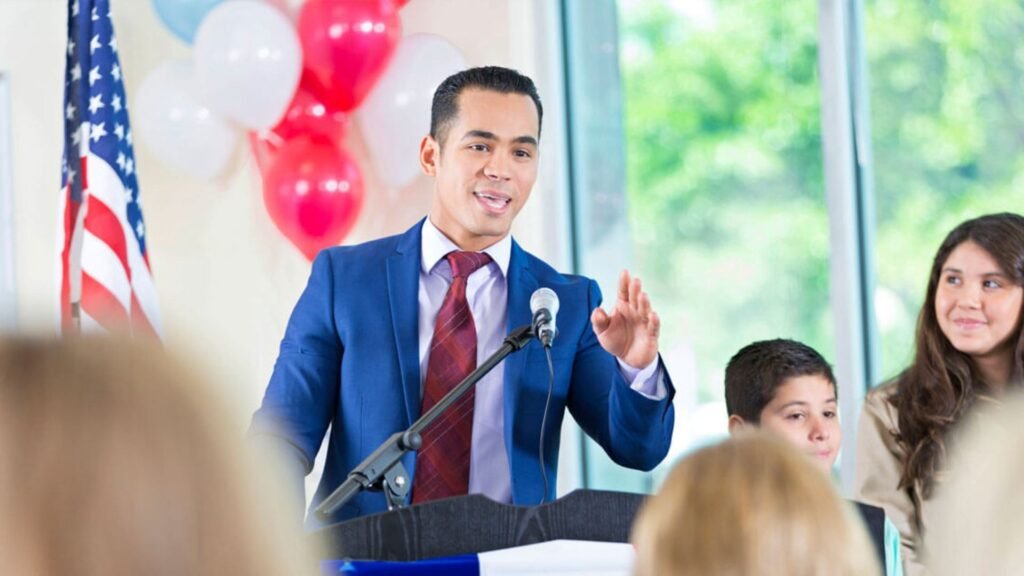Running a political campaign requires careful planning, strategic communication, and a deep understanding of your electorate. Whether you’re a first-time candidate or a seasoned campaigner, following best practices can significantly enhance your chances of success. Here’s a guide to help you run an effective political campaign.

Define Clear Campaign Goals
Before launching your campaign, establish clear goals. What do you want to achieve? Is it raising awareness about specific issues, winning an election, or influencing policy? Setting clear, measurable goals will guide your strategy and help you stay focused throughout the campaign.
Understand Your Voters
A successful campaign starts with understanding your electorate. Conduct research to learn about the demographics, needs, and concerns of your voters. Use surveys, focus groups, and voter data to gain insights. Tailor your messaging and campaign strategies to resonate with your target audience.
Build a Strong Campaign Team
Your campaign team is crucial to your success. Assemble a group of dedicated individuals who bring diverse skills to the table, including communications, fundraising, data analysis, and volunteer coordination. Clearly define roles and responsibilities to ensure everyone is working toward the same goals.
Craft a Compelling Message
Your campaign message should be clear, consistent, and compelling. It should convey why you’re running, what you stand for, and how you plan to address the issues that matter to voters. Keep your message simple and repeat it often across all platforms to ensure it sticks with your audience.
Leverage Digital Media
In today’s digital age, an online presence is essential. Use social media, email newsletters, and a campaign website to reach voters where they are. Create engaging content, such as videos, blog posts, and infographics, to spread your message. Digital media also allows for targeted advertising, which can be highly effective in reaching specific voter segments.
Engage with Voters Directly
Personal engagement is a powerful tool in political campaigning. Attend local events, host town halls, and knock on doors to meet voters face-to-face. Listening to their concerns and discussing your platform builds trust and shows that you’re committed to representing their interests.
Fundraise Effectively
Fundraising is critical to sustaining your campaign. Develop a comprehensive fundraising strategy that includes online donations, events, and direct mail campaigns. Cultivate relationships with donors and clearly communicate how their contributions will support your campaign goals.
Monitor and Adapt Your Strategy
Campaigns are dynamic, and you may need to adjust your strategies based on new information or changing circumstances. Regularly review your campaign’s progress, monitor voter sentiment, and be prepared to pivot if necessary. Flexibility and responsiveness can be the difference between winning and losing.
Prepare for Debates and Public Speaking
Debates and public speaking engagements are opportunities to showcase your knowledge, communicate your message, and differentiate yourself from your opponents. Practice thoroughly, know your talking points, and be ready to address tough questions. Confidence and clarity are key.
Focus on Get-Out-The-Vote (GOTV) Efforts
As Election Day approaches, intensify your efforts to get your supporters to the polls. Develop a GOTV plan that includes phone banking, door-to-door canvassing, and providing transportation to polling stations. Ensure that your supporters know where, when, and how to vote.
Tips for Effective Political Campaigning
- Stay Authentic: Voters can sense authenticity. Be genuine in your messaging and interactions.
- Be Persistent: Campaigns are challenging and require resilience. Stay committed, even in the face of setbacks.
- Prioritize Voter Outreach: Direct voter contact should be a primary focus throughout your campaign.
- Utilize Data: Leverage voter data to make informed decisions about where to allocate resources and how to target your messaging.
Conclusion
Running an effective political campaign involves a combination of strategic planning, voter engagement, and adaptability. By defining clear goals, understanding your electorate, and leveraging both digital and traditional campaign strategies, you can build a campaign that resonates with voters and positions you for success.




